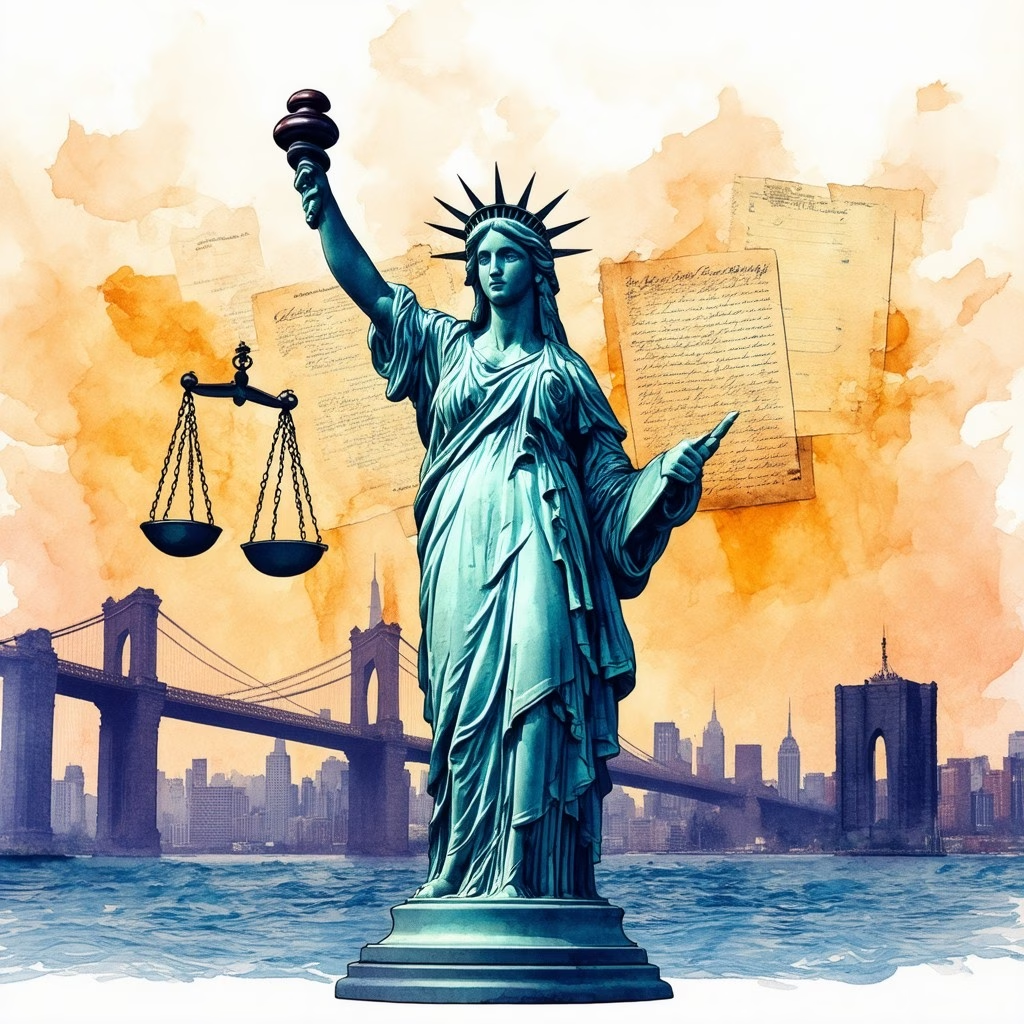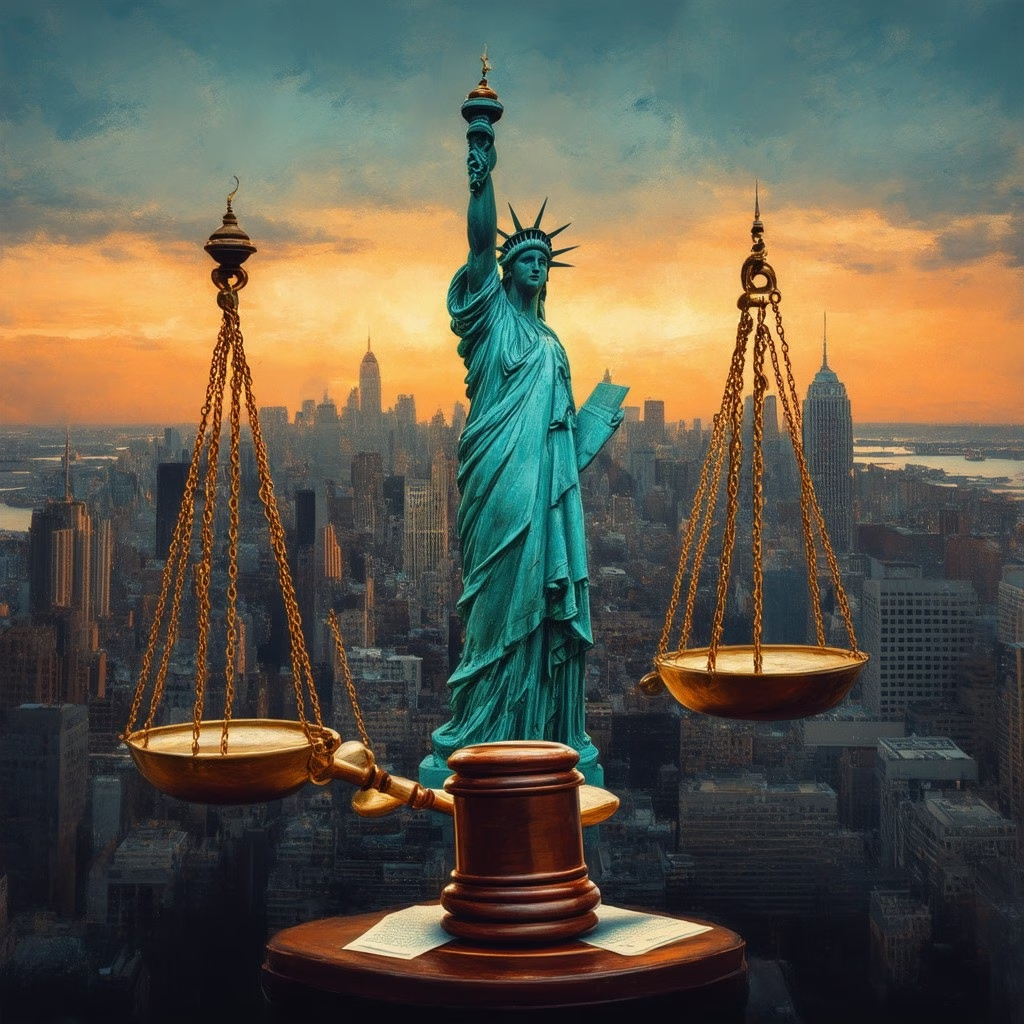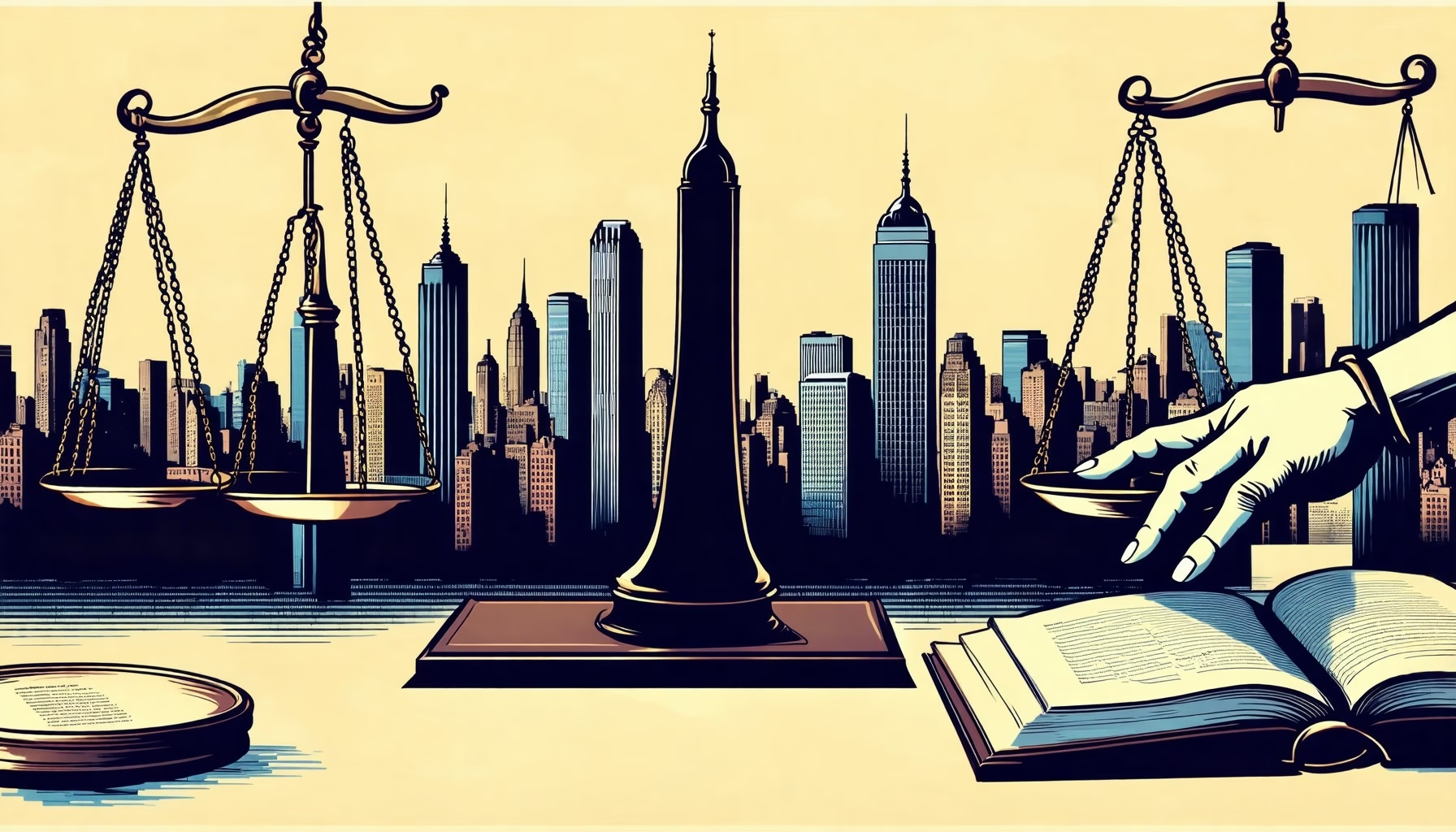Key Takeaways
- Qualifying for a public defender in New York requires demonstrating financial need and facing serious criminal charges that could lead to incarceration.
- Eligibility is determined through a means test that evaluates income, assets, and household size, with specific income limits based on the Federal Poverty Guidelines.
- The application process involves submitting a financial affidavit to the court and may include a hearing to confirm eligibility for public defense services.
- Common disqualifications include having sufficient income or assets, previous public defense representation, or waiving the right to counsel.
- For those in need, various resources are available to assist with the application process, including legal aid organizations and local court systems.
Navigating the legal system can be daunting, especially when facing criminal charges in New York. Understanding how to get a public defender in New York is crucial for those who may not have the financial means to hire private legal representation. In this comprehensive guide, we will explore the essential steps to qualify for a public defender, including the income limits and eligibility criteria that determine who can access these vital services. Additionally, we will address common disqualifications and clarify whether public defenders are truly free. For those seeking further assistance, we will provide insights on how to get a public defender for free and resources for finding a lawyer in New York. Furthermore, we will touch on the educational pathways for aspiring public defenders and the salary structures within this essential profession. By the end of this article, you will have a clear understanding of the public defender system in New York and the options available to you or your loved ones in need of legal aid.
How to Get a Public Defender in New York: A Comprehensive Guide
What qualifies you for a public defender in NY?
To qualify for a public defender in New York, several criteria must be met, primarily revolving around financial need and the nature of the charges. Here are the key qualifications:
- Financial Eligibility: Individuals must demonstrate that they cannot afford to hire a private attorney. This is assessed through a means test, which considers income, assets, and debts. There is no fixed income threshold; rather, eligibility is determined on a case-by-case basis.
- Criminal Charges: Public defenders are typically appointed for individuals facing criminal charges that could result in incarceration. This includes misdemeanors and felonies. If the case involves potential jail time, the right to legal representation is guaranteed under the Sixth Amendment.
- Custody Status: Individuals who are in custody and unable to post bail are generally presumed eligible for public defender services. This presumption is crucial as it ensures that those who are most vulnerable have access to legal representation.
- Application Process: To apply for a public defender, individuals must fill out a financial affidavit detailing their financial situation. This affidavit is reviewed by the court to determine eligibility.
- Local Variations: Each county in New York may have specific procedures and criteria for public defender services. For instance, in Dutchess County, the Public Defender’s Office provides resources and guidance on the application process, ensuring that individuals understand their rights and options.
For more detailed information, individuals can refer to the New York State Unified Court System, which oversees public defense services and ensures compliance with legal standards.
The role of income and asset evaluation in qualification
The evaluation of income and assets plays a critical role in determining eligibility for a public defender in New York. This assessment ensures that legal representation is provided to those who genuinely cannot afford it. Here’s how the process works:
- Means Test: The means test evaluates an individual’s financial situation, including income from all sources, savings, and any outstanding debts. This comprehensive review helps the court ascertain whether the applicant meets the financial criteria for public defense.
- Affidavit Submission: Applicants must submit a financial affidavit that outlines their economic circumstances. This document is essential for the court’s review and decision-making process regarding eligibility.
- Variability by County: Different counties may have varying thresholds and methods for assessing financial need. For example, the Legal Aid Assistance page provides insights into how these evaluations can differ across regions.
Understanding the role of income and asset evaluation is crucial for anyone seeking to navigate the public defender system in New York. By ensuring that only those in genuine need receive representation, the system aims to uphold the principles of justice and equality.

What qualifies you for a public defender in NY?
Understanding the eligibility criteria for public defenders in New York is essential for anyone facing criminal charges. To qualify for a public defender, defendants must meet specific requirements that primarily revolve around their financial situation and the nature of their charges. Here are the key factors that determine eligibility:
- Type of Offense: Public defenders are typically provided for criminal cases that could result in incarceration. If the charges are for minor offenses, such as misdemeanors or infractions that do not carry the possibility of jail time, a defendant may not qualify for a public defender. For example, traffic violations or petty theft may not warrant legal representation at public expense.
- Financial Eligibility: The defendant’s financial status plays a crucial role in determining eligibility. If an individual can demonstrate that they have sufficient income or assets to afford private legal counsel, they may be disqualified from receiving a public defender. Each jurisdiction has specific income thresholds that must be met to qualify for free legal services.
- Previous Representation: If a defendant has previously been represented by a public defender in the same case or has a history of abusing the system, they may be denied further representation.
- Waiver of Rights: A defendant who voluntarily waives their right to counsel, understanding the implications of self-representation, may also be disqualified from receiving a public defender.
- Jurisdictional Variations: Different states and localities have varying laws and regulations regarding public defenders. Some jurisdictions may have stricter criteria than others, impacting eligibility.
For more detailed information on the right to a public defender and the criteria for eligibility, you can refer to resources such as the American Bar Association and state-specific legal aid organizations. These sources provide comprehensive insights into the legal framework governing public defense and the rights of defendants.
The role of income and asset evaluation in qualification
Income and asset evaluation is a critical component in determining eligibility for a public defender in New York. The state assesses an individual’s financial situation to ensure that public defense resources are allocated to those who genuinely cannot afford private legal representation. Here’s how this evaluation typically works:
- Income Assessment: Defendants must provide documentation of their income, which may include pay stubs, tax returns, or bank statements. This information helps establish whether they fall below the income threshold set by the state.
- Asset Evaluation: In addition to income, the evaluation considers the defendant’s assets. This includes savings accounts, property ownership, and other financial resources. If a defendant possesses significant assets, they may be deemed ineligible for a public defender.
- Family Size Consideration: The income limits may vary based on the size of the defendant’s household. Larger families may have higher income thresholds, allowing more individuals to qualify for public defense services.
Understanding these criteria is vital for anyone seeking to navigate the public defender system in New York. For further assistance, you can explore resources on legal aid assistance and how to access support.
What qualifies you for a public defender in NY?
Understanding the eligibility criteria for public defenders in New York is essential for those seeking legal representation. To qualify for a public defender, individuals must demonstrate that they cannot afford to hire a private attorney. This determination is primarily based on income and asset evaluations, which assess whether an applicant meets the financial thresholds set by the state.
The role of income and asset evaluation in qualification
In New York, the income limit for eligibility for public defender services is determined by the Federal Poverty Guidelines. Specifically, an applicant is presumptively eligible if their income is at or below 250% of these guidelines. As of 2023, the Federal Poverty Guidelines for a household of one is $14,580 annually, meaning the income limit for public defender eligibility would be approximately $36,450. For larger households, the limit increases accordingly. For the most accurate and up-to-date information regarding income limits and eligibility criteria, applicants should refer to official resources such as the New York City website or consult the Federal Poverty Guidelines published by the U.S. Department of Health and Human Services.
What disqualifies you from getting a public defender?
While many individuals may qualify for a public defender, certain factors can lead to disqualification from these services. Understanding these common reasons is crucial for applicants to navigate their legal options effectively.
Common reasons for disqualification from public defender services
Disqualification from public defender services can occur for various reasons, including having sufficient income or assets that exceed the established limits. Additionally, if an individual has previously been convicted of a crime and is currently facing charges related to that conviction, they may not qualify for a public defender. It’s important to assess your situation carefully and consider other legal options if you find yourself disqualified. For those seeking alternatives, resources on how to find a lawyer in New York can provide valuable guidance.
How to Get a Public Defender for Free
Understanding how to get a public defender in New York is essential for individuals facing legal challenges without the means to hire a private attorney. The process is designed to ensure that everyone has access to legal representation, regardless of their financial situation. Here’s a step-by-step guide to help you navigate the application process.
Step-by-Step Process to Apply for a Public Defender in New York
- Determine Your Eligibility: Before applying, confirm that you meet the eligibility criteria for a public defender. This typically includes being charged with a crime and demonstrating financial need.
- Visit the Local Court: Go to the courthouse where your case is being heard. You can find the nearest court through the New York State Unified Court System.
- Complete the Application: Fill out the application for a public defender. This form will require details about your income, expenses, and assets to assess your financial situation.
- Attend the Hearing: After submitting your application, you may need to attend a hearing where a judge will review your financial information and determine your eligibility.
- Receive Representation: If approved, a public defender will be assigned to your case. They will provide legal representation at no cost, although there may be circumstances where repayment is required based on your financial situation.
Resources for Assistance in the Application Process
For additional support, consider reaching out to local legal aid organizations or community resources that can guide you through the application process. Websites like the Legal Services Corporation and the American Bar Association offer valuable information on accessing legal aid. Furthermore, if you need assistance beyond public defenders, you can explore options on accessing legal support.

How to Get a Public Defender for Free
Obtaining a public defender in New York is a crucial step for individuals facing criminal charges who cannot afford legal representation. Here’s a step-by-step guide on how to get a public defender for free:
- Understand Your Rights: The Sixth Amendment of the U.S. Constitution guarantees the right to legal counsel for defendants who cannot afford an attorney in criminal cases that may result in imprisonment. This means you are entitled to a public defender if you meet specific criteria.
- Determine Eligibility: Eligibility for a public defender typically depends on your income level and the nature of the charges against you. Most jurisdictions have income guidelines, and if your income is below a certain threshold, you may qualify.
- Request a Public Defender: When you are arrested or charged with a crime, inform the court of your financial situation. During your first court appearance, known as an arraignment, explicitly request the appointment of a public defender. Be prepared to provide information about your income and expenses.
- Complete the Application: In many jurisdictions, you will need to fill out a financial affidavit or application form to assess your eligibility for a public defender. This form will require details about your income, assets, and any dependents.
- Attend the Hearing: After your application is submitted, a judge will review your financial information and determine whether you qualify for a public defender. Attend this hearing, as it is crucial for your case.
- Seek Additional Resources: If you are denied a public defender, consider reaching out to local legal aid organizations or pro bono services that may offer free legal assistance. Websites like the American Bar Association provide resources to find legal help in your area.
Resources for Assistance in the Application Process
Applying for a public defender can be daunting, but various resources can assist you throughout the process:
- Accessing legal support can provide guidance on navigating the complexities of legal aid.
- Local legal aid offices often have staff who can help you fill out the necessary forms and understand your rights. Check the official New York City website for contact information.
- Consider visiting the Legal Services Corporation for additional resources and information on legal aid eligibility.
- For further assistance, you can explore options for public attorney options available in your area.
What is the income limit for legal aid in NY?
In New York, the income limit for qualifying for legal aid varies depending on the type of legal assistance needed and the specific legal aid organization. Generally, the income eligibility is set at 125% of the Federal Poverty Level (FPL). For 2023, this means that an individual must earn less than approximately $17,000 annually, while a family of four must have an income below about $35,000. Legal aid organizations may also consider other factors such as household size and specific legal issues when determining eligibility. For example, organizations like Legal Services NYC and the Legal Aid Society provide resources and assistance to those who meet these income thresholds.
Differences between public defenders and legal aid services
While both public defenders and legal aid services aim to provide legal representation to those who cannot afford it, there are key differences between the two. Public defenders are typically assigned to individuals facing criminal charges and are funded by the government. Their primary role is to ensure that defendants receive a fair trial and adequate legal representation in criminal cases.
On the other hand, legal aid services cover a broader range of civil legal issues, including housing, family law, and immigration matters. Legal aid organizations often have specific income eligibility requirements and may provide assistance based on the type of legal issue rather than solely on criminal charges. For more information on accessing legal support, you can visit Accessing legal support.
How to find a lawyer in New York?
Finding a lawyer in New York can be a straightforward process if you know where to look. Here are some effective strategies to help you locate legal representation:
- Online Directories: Utilize online legal directories such as American Bar Association or Legal Services Corporation. These platforms allow you to search for lawyers based on their specialties and locations.
- Referrals: Ask friends, family, or colleagues for recommendations. Personal referrals can lead you to trustworthy lawyers who have successfully handled cases similar to yours.
- Local Bar Associations: Contact your local bar association for a referral service. They can provide a list of qualified attorneys in your area who specialize in your legal issue.
- Legal Aid Organizations: If you are low-income, consider reaching out to legal aid organizations. They can help you find affordable legal assistance or connect you with a public defender if you qualify. For more information, visit Accessing legal support.
How to become a public defender in New York?
Becoming a public defender in New York requires a combination of education, experience, and commitment to public service. Here’s a breakdown of the steps involved:
- Educational Requirements: You must earn a Juris Doctor (JD) degree from an accredited law school. During your studies, focus on criminal law and public interest law courses to prepare for a career as a public defender.
- Bar Examination: After completing your JD, you must pass the New York State Bar Examination to practice law in New York.
- Internships and Experience: Gain experience through internships or clerkships with public defender offices or legal aid organizations. This hands-on experience is invaluable and can enhance your application.
- Application Process: Apply for positions at public defender offices, such as the New York City Public Defender’s Office. Be prepared to demonstrate your commitment to defending the rights of the accused and your understanding of the challenges faced by public defenders.




